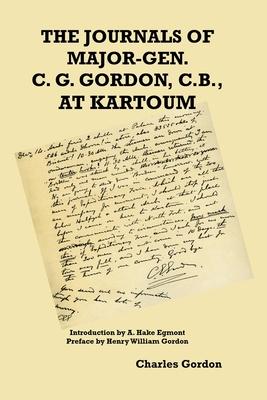"Now mark this, if the Expeditionary Force, and I ask for no more than two hundred men, does not come in ten days, the town may fall; and I have done my best for the honour of our country. Good bye." These are the poignant last words written by Major-General Charles George Gordon in the final entry of his journal kept at the city of Khartoum in the Sudan in January 1885, just prior to the fall of that city. Gordon and at least 10,000 residents of the city were slaughtered in the butchery which followed.
Having first been appointed Governor-General of the Sudan in 1873 by the Egyptian government-with the approval of the British government-Gordon had worked hard to bring the country to order, suppressing the Islamic slave trade and uplifting the population. He was recalled to that office in 1883 following the outbreak of the 1881 Islamist uprising under a self-proclaimed "Mahdi" of Islam (the "Guided One") in the Sudan.
Sent to Khartoum to organise the evacuation of the city, Gordon succeeded in arranging the safe departure of over 2,500 civilians, but stayed on with a small group of soldiers and others to defend the city against the Mahdist forces.
The resultant siege lasted more than a year, during which time Gordon kept a what became a six volume journal, smuggled out in parts back to the British authorities.
This journal recounted the day-to-day life, adventures, battles, tactics, survival mechanisms of the besieged city-such as the building of "homemade" landmines out of water cans filled with dynamite, and wooden dummy sentries in uniform on the city walls-among many other innovations.
The journals-which read like a thriller-were also full of bitter recrimination towards the British government, which Gordon blamed for refusing to intervene, despite officially encouraging him to go in the first place.
The year-long defence of the city gained Gordon wide admiration in Britain, and finally, public pressure forced the government to organise a relief column.
This force however arrived two days too late: Khartoum had fallen, and Gordon had been killed and decapitated, and his head paraded around as trophy by the Mahdist leaders.
This new edition of all six of Gordon's "Journals of Khartoum" is not a "facsimile reproduction," but has been entirely reset to modern standards. It contains all the author's original illustrations, digitally restored to the highest quality possible.
This edition also has the original enlightening preliminary remarks by his brother, commissary-general Sir Henry Gordon, and the full set of appendices which contain supplementary letters, proclamations and other significant data.
